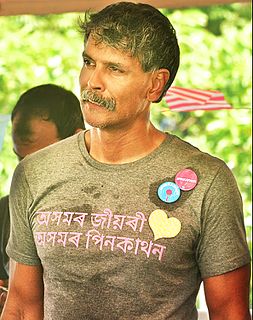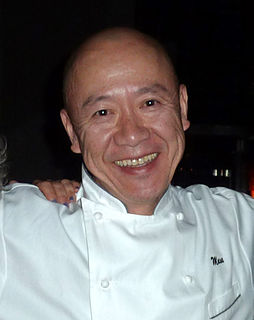A Quote by Steve Ells
When I created Chipotle in 1993, I had a very simple idea: Offer a simple menu of great food prepared fresh each day, using many of the same cooking techniques as gourmet restaurants. Then serve the food quickly, in a cool atmosphere. It was food that I wanted, and thought others would like too. We've never strayed from that original idea. The critics raved and customers began lining up at my tiny burrito joint. Since then, we've opened a few more.
Quote Topics
Atmosphere
Began
Chipotle
Cooking
Cool
Created
Critics
Customers
Day
Each
Each Day
Few
Food
Fresh
Gourmet
Great
Great Food
Had
Idea
Joint
Like
Lining
Lining Up
Many
Menu
More
Never
Offer
Opened
Original
Original Idea
Others
Prepared
Quickly
Restaurants
Same
Serve
Simple
Since
Techniques
Then
Thought
Tiny
Too
Up
Using
Very
Wanted
Would
Related Quotes
Let’s get one thing straight: Mexican food takes a certain amount of time to cook. If you don’t have the time, don’t cook it. You can rush a Mexican meal, but you will pay in some way. You can buy so-called Mexican food at too many restaurants that say they cook Mexican food. But the real food, the most savory food, is prepared with time and love and at home. So, give up the illusion that you can throw Mexican food together. Just understand that you are going to have to make and take the time.
Imagine if we had a food system that actually produced wholesome food. Imagine if it produced that food in a way that restored the land. Imagine if we could eat every meal knowing these few simple things: What it is we're eating. Where it came from. How it found its way to our table. And what it really cost. If that was the reality, then every meal would have the potential to be a perfect meal.
India has the largest number of hungry people. Yet it's an outcome of precisely the same mechanism. It's the control of agriculture that drives down the price it paid for food that it buys from farmers, who are the poorest people. Then you're paying very little for food. You're underpaying the poorest people in any society. Then they're marketing to us the things that are most profitable to them. And those are the things that are packaged and processed and what-have-you. That means you have the simple thing of the explosion of obesity and hunger as a result of capitalism in our food system.
My job the same as carpenter. What kind of house you want to build? What kind of food you want to make? You think your ingredients, your structure. Simple. [Other] Japanese restaurants … mix in some other style of food and call it influence, right? I don't like that. … In Japanese sushi restaurants, a lot of sushi chefs talk too much. 'This fish from there,' 'This very expensive.' Same thing, start singing. And a lot have that fish case in front of them, cannot see what chef do. I'm not going to hide anything, right?






























